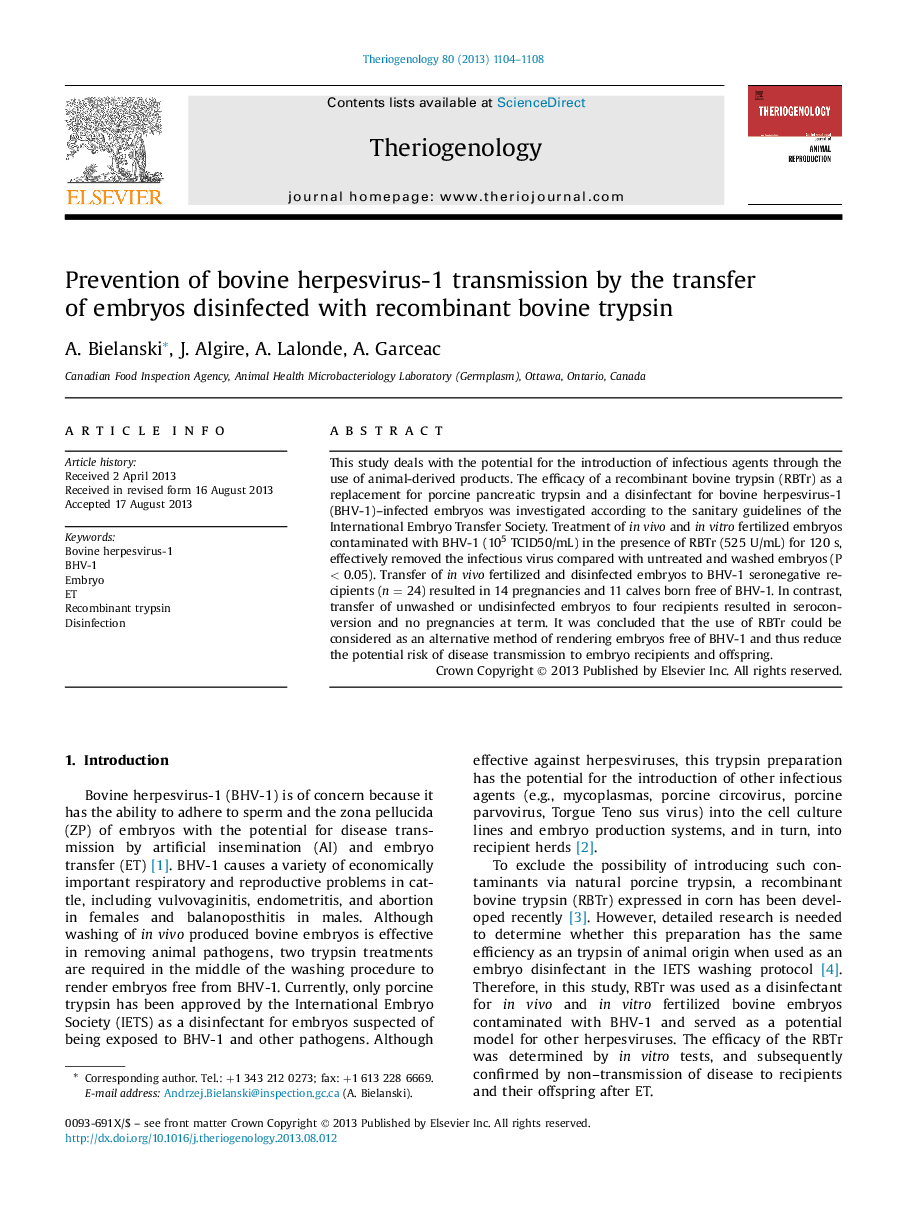| Article ID | Journal | Published Year | Pages | File Type |
|---|---|---|---|---|
| 2097613 | Theriogenology | 2013 | 5 Pages |
This study deals with the potential for the introduction of infectious agents through the use of animal-derived products. The efficacy of a recombinant bovine trypsin (RBTr) as a replacement for porcine pancreatic trypsin and a disinfectant for bovine herpesvirus-1 (BHV-1)–infected embryos was investigated according to the sanitary guidelines of the International Embryo Transfer Society. Treatment of in vivo and in vitro fertilized embryos contaminated with BHV-1 (105 TCID50/mL) in the presence of RBTr (525 U/mL) for 120 s, effectively removed the infectious virus compared with untreated and washed embryos (P < 0.05). Transfer of in vivo fertilized and disinfected embryos to BHV-1 seronegative recipients (n = 24) resulted in 14 pregnancies and 11 calves born free of BHV-1. In contrast, transfer of unwashed or undisinfected embryos to four recipients resulted in seroconversion and no pregnancies at term. It was concluded that the use of RBTr could be considered as an alternative method of rendering embryos free of BHV-1 and thus reduce the potential risk of disease transmission to embryo recipients and offspring.
